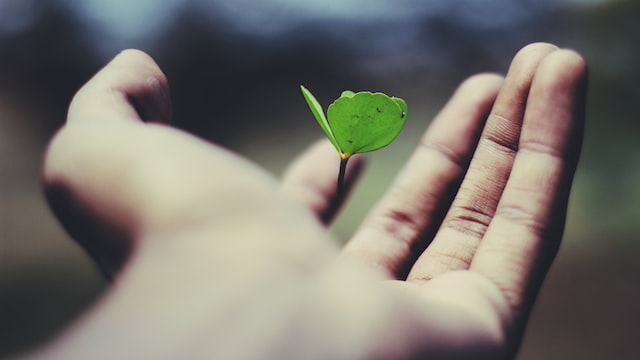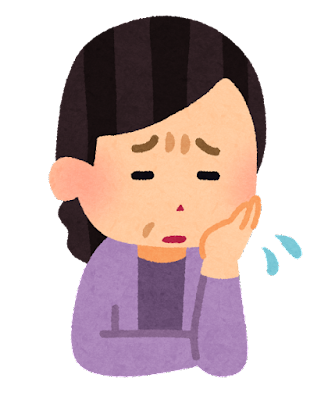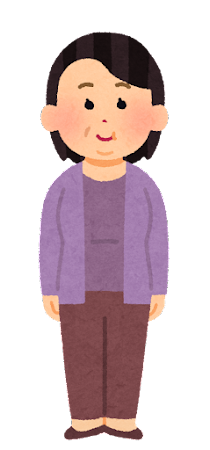ライフハックとしてではなく、英語学習にも極めて有用なのが、著名人が10分程度のプレゼンを行うTEDです。
TED Talksとは、あらゆる分野のエキスパートたちによるプレゼンテーションを無料で視聴できる動画配信サービスのことです。10年ほど前にサービスが開始されてから、政治、心理学、経済、日常生活などの幅広いコンテンツが視聴できることから人気を集めています。
RareJob English Lab
TEDは4000を超える膨大な数の動画があります。しかし慣れないうちは、動画の探し方や視聴のコツが分かりませんよね。この記事では、数多くのTEDを見てきた管理人(塩@saltandshio)が、心を揺さぶられたトークをあらすじと一緒にご紹介します。
ビジネス英会話を効率よく身につけたい方におすすめスクール
シェーン英会話
シェーンは1977年の創業以来、ネイティブ講師が英語を英語で教える「直接教授法」を採用しています。首都圏におけるスクール拠点数は、ネイティブ講師の英会話スクールでNo.1。駅から近いスクールが多いので通いやすく時間を有効に使えます。
スピークバディ パーソナルコーチング
1日1時間の短期集中トレーニングで、あなたの英語力向上をコーチが全力でサポートします。あなたの英語の世界が、劇的に変わります。
ドリー・チュー: 「いい人」をやめて「もっといい人」になる方法
もし「いい人」でいようとする執着が、実は「もっといい人」になる妨げになっていたらどうでしょうか。そして、自分が持つ偏見に気付き間違いを受け入れることは、なぜこんなにも大変なのでしょうか。「もっといい人」になるための道は、間違いを認めることで開けると、社会心理学者であるドリー・チューは語ります(約12分)。
[PR]無料体験レッスン実施中!全国208校、創業40年の老舗英会話スクール【シェーン英会話】「いい人」を守るために努力する人たち
社会科学者で「いい人」の心理を研究しているドリー・チューは、多くの人にとって自分がいい人であると感じることや、そう見られることを大事にしていると言います。ただ、「いい人」の定義はありません。人によってなにが「いい人」と感じるかもバラバラです。しかし、「いい人」の定義がなんにせよ、私たちは広く道徳的アイデンティティと呼ばれるものを、とても重く見る傾向にあります。
さらに、私たちは「いい人」であることを守ろうとします。そのために、慈善団体に寄付をしたり、非営利団体にボランティア活動をしたり、「いい人」というアイデンティティを守るために必死に活動している人もいます。
しかし、そんな「いい人」というアイデンティティを守るための努力が、より「いい人」になる妨げになっているとしたら、あなたはどう思いますか?
[PR]まずは無料カウンセリング”続けるため”の オンライン英語コーチ「スピークバディ パーソナルコーチング」「いい人」への執着が「もっといい人」になるのを妨げる
私たちが持つ「いい人」の定義はあまりに限定的すぎて、じつは科学的にも心を満たすことは不可能といわれています。たいていの場合、人の精神機能は自分の認知の外で起きています。「いい人」の定義が人それぞれなのは、このためです。
どの瞬間も常に人の頭の中には1100万の情報が入ってきています。ですが、意識的に処理されるのはそのうちの40だけです。1100万のうち40しか、人は意識的に処理していないのです。
学校や会社に行こうと家を出てから、家の電気を消したか玄関の鍵をちゃんと閉めてきたかを心配になることはありませんか?それは、1100万の情報を操りながら40の情報だけを意識的に処理している瞬間です。
膨大な情報量を処理するために、脳は意図的に「近道」を探して使っているのです。
[PR]知って得する、知らないと損をする!すぐに役立つ相手に合った「伝え方」のコツ!脳は常に「近道」を探している
ドリー・チューは、マックス・ベイザーマンとマーザリン・バナジとともに限定倫理性の研究を行っています。これは、人の心は何らかの方法で限定されており、脳が近道に依存して行動を行うことによって、思いがけずに人を惑わせるというものです。
無意識の偏見は、限定倫理性が及ぼす影響を露わにするものの一つです
Unconscious bias is one place where we see the effects of bounded ethicality.
たとえば、『男性×仕事』と『女性×仕事』、『男性×育児』と『女性×育児』では漠然とイメージに差が出来ませんか?これは無意識の偏見とよばれる脳が近道を探す作用の一例といっていいでしょう。しかも、この関連付けは意識的に考えることと、必ずしも一致するわけではありません。
あくまで、1100万と40が一致していないだけなのです。
[PR]しちだの魔法ペンなら35日でバイリンガルに!楽天4部門1位の英会話!<七田式>本を読んで勉強するように、「いい人」もヴァージョンアップしていこう
「いい人」がなぜ人を惑わすのでしょうか。それは、人々が無意識に「いい人」であることは難しくないと考えているからと、ドリー・チューは言います。
私たちが持つ「いい人」の定義は二者択一です。いい人かそうでないか。誠実かそうでないか。人種差別的か、性差別的か、同性愛恐怖症か、またはそうでないか。
この二者択一の定義では、成長の余地がないんです。
We have this definition of good person that’s either-or. Either you are a good person or you’re not.Either you have integrity or you don’t. Either you are a racist or a sexist or a homophobe or you’re not.
And in this either-or definition, there’s no room to grow.
私たちがなにか新たな知識を学ぼうとするとき、本を買ったり、カルチャースクールに通ったり、親に教えてもらったりします。教師や専門家から学んで知識を更新していくことで、ひたすら改善を続けます。
しかし、「いい人」であることに関しては、たいていの人は努力や成長の恩恵なしに当然やり方を知っていて、当然そうあるべきだと思っているところがあります。そこでドリー・チューは、「いい人」でいることをやめて、「もっといい人」になりましょうと提唱します。
[PR]すべての社会人のための業務効率アップ講座【速読解Biz】まとめ:自分に成長の余地を与えよう
「もっといい人」も、もちろん間違いを犯すことはあります。しかし、「もっといい人」であるために、間違うことを前提として自分の間違いを探し始めるのです。人から指摘されるのを待たずに、自分から間違いを探すようになります。時には、自分を弱い立場に追い込んでしまうこともありますが、そうして成長を確かめるようになります。
より良い自分になる許可を自分に与えるのです。
We allow ourselves to get better.
「いい人」であろうとすると、無意識に利己的になり大切なことを見落としてしまいます。「いい人」をやめて「もっといい人」になろうとした時、私たちは自らに成長の余地を与えて自分自身を高めることが出来ます。
さぁ、今日からあなたも「いい人」をやめて、「もっといい人」になってみませんか。
英語全文
So a friend of mine was riding in a taxi to the airport the other day, and on the way, she was chatting with the taxi driver, and he said to her, with total sincerity, “I can tell you are a really good person.” And when she told me this story later, she said she couldn’t believe how good it made her feel, that it meant a lot to her. Now that may seem like a strong reaction from my friend to the words of a total stranger, but she’s not alone.
<全文を読む>▼クリック▼
Now, if somebody challenges it, like they question us for a joke we tell, or maybe we say our workforce is homogenous, or a slippery business expense, we go into red-zone defensiveness a lot of the time. I mean, sometimes we call out all the ways in which we help people from marginalized groups, or we donate to charity, or the hours we volunteer to nonprofits. We work to protect that good person identity. It’s important to many of us.
But what if I told you this? What if I told you that our attachment to being good people is getting in the way of us being better people? What if I told you that our definition of “good person” is so narrow, it’s scientifically impossible to meet? And what if I told you the path to being better people just begins with letting go of being a good person?
Now, let me tell you a little bit about the research about how the human mind works to explain. The brain relies on shortcuts to do a lot of its work. That means a lot of the time, your mental processes are taking place outside of your awareness, like in low-battery, low-power mode in the back of your mind. That’s, in fact, the premise of bounded rationality. Bounded rationality is the Nobel Prize-winning idea that the human mind has limited storage resources, limited processing power, and as a result, it relies on shortcuts to do a lot of its work. So for example, some scientists estimate that in any given moment … Better, better click, right? There we go.
At any given moment,11 million pieces of information are coming into your mind. Eleven million. And only 40 of them are being processed consciously. So 11 million,40.
I mean, has this ever happened to you? Have you ever had a really busy day at work, and you drive home, and when you get in the door, you realize you don’t even remember the drive home, like whether you had green lights or red lights. You don’t even remember. You were on autopilot. Or have you ever opened the fridge, looked for the butter, swore there is no butter, and then realized the butter was right in front of you the whole time? These are the kinds of “whoops” moments that make us giggle, and this is what happens in a brain that can handle 11 million pieces of information coming in with only 40 being processed consciously. That’s the bounded part of bounded rationality.
This work on bounded rationality is what’s inspired work I’ve done with my collaborators Max Bazerman and Mahzarin Banaji, on what we call bounded ethicality. So it’s the same premise as bounded rationality, that we have a human mind that is bounded in some sort of way and relying on shortcuts, and that those shortcuts can sometimes lead us astray. With bounded rationality, perhaps it affects the cereal we buy in the grocery store, or the product we launch in the boardroom. With bounded ethicality, the human mind, the same human mind, is making decisions, and here, it’s about who to hire next, or what joke to tell or that slippery business decision.
So let me give you an example of bounded ethicality at work. Unconscious bias is one place where we see the effects of bounded ethicality. So unconscious bias refers to associations we have in our mind, the shortcuts your brain is using to organize information, very likely outside of your awareness, not necessarily lining up with your conscious beliefs. Researchers Nosek, Banaji and Greenwald have looked at data from millions of people, and what they’ve found is, for example, most white Americans can more quickly and easily associate white people and good things than black people and good things, and most men and women can more quickly and easily associate men and science than women and science. And these associations don’t necessarily line up with what people consciously think. They may have very egalitarian views, in fact. So sometimes, that 11 million and that 40 just don’t line up.
And here’s another example: conflicts of interest. So we tend to underestimate how much a small gift — imagine a ballpoint pen or dinner — how much that small gift can affect our decision making. We don’t realize that our mind is unconsciously lining up evidence to support the point of view of the gift-giver, no matter how hard we’re consciously trying to be objective and professional. We also see bounded ethicality — despite our attachment to being good people, we still make mistakes, and we make mistakes that sometimes hurt other people, that sometimes promote injustice, despite our best attempts, and we explain away our mistakes rather than learning from them. Like, for example, when I got an email from a female student in my class saying that a reading I had assigned, a reading I had been assigning for years, was sexist. Or when I confused two students in my class of the same race — look nothing alike — when I confused them for each other more than once, in front of everybody.
These kinds of mistakes send us, send me, into red-zone defensiveness. They leave us fighting for that good person identity. But the latest work that I’ve been doing on bounded ethicality with Mary Kern says that we’re not only prone to mistakes — that tendency towards mistakes depends on how close we are to that red zone. So most of the time, nobody’s challenging our good person identity, and so we’re not thinking too much about the ethical implications of our decisions, and our model shows that we’re then spiraling towards less and less ethical behavior most of the time.
On the other hand, somebody might challenge our identity, or, upon reflection, we may be challenging it ourselves. So the ethical implications of our decisions become really salient, and in those cases, we spiral towards more and more good person behavior, or, to be more precise, towards more and more behavior that makes us feel like a good person, which isn’t always the same, of course. The idea with bounded ethicality is that we are perhaps overestimating the importance our inner compass is playing in our ethical decisions. We perhaps are overestimating how much our self-interest is driving our decisions, and perhaps we don’t realize how much our self-view as a good person is affecting our behavior, that in fact, we’re working so hard to protect that good person identity, to keep out of that red zone, that we’re not actually giving ourselves space to learn from our mistakes and actually be better people.
It’s perhaps because we expect it to be easy. We have this definition of good person that’s either-or. Either you are a good person or you’re not. Either you have integrity or you don’t. Either you are a racist or a sexist or a homophobe or you’re not. And in this either-or definition, there’s no room to grow. And by the way, this is not what we do in most parts of our lives. Life, if you needed to learn accounting, you would take an accounting class, or if you become a parent, we pick up a book and we read about it. We talk to experts, we learn from our mistakes, we update our knowledge, we just keep getting better. But when it comes to being a good person, we think it’s something we’re just supposed to know, we’re just supposed to do, without the benefit of effort or growth.
So what I’ve been thinking about is what if we were to just forget about being good people, just let it go, and instead, set a higher standard, a higher standard of being a good-ish person? A good-ish person absolutely still makes mistakes. As a good-ish person, I’m making them all the time. But as a good-ish person, I’m trying to learn from them, own them. I expect them and I go after them. I understand there are costs to these mistakes. When it comes to issues like ethics and bias and diversity and inclusion, there are real costs to real people, and I accept that. As a good-ish person, in fact, I become better at noticing my own mistakes. I don’t wait for people to point them out. I practice finding them, and as a result … Sure, sometimes it can be embarrassing, it can be uncomfortable. We put ourselves in a vulnerable place, sometimes. But through all that vulnerability, just like in everything else we’ve tried to ever get better at, we see progress. We see growth. We allow ourselves to get better.
Why wouldn’t we give ourselves that? In every other part of our lives, we give ourselves room to grow — except in this one, where it matters most.
Thank you.
<閉じる>
\ ほかにも気になるトークが満載! /









